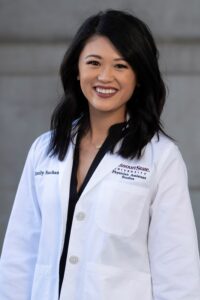
Article written and photos provided by Emily Suchanek
On December 7, 2019, I addressed my classmates, faculty, and our friends and families at the annual White Coat Ceremony. We had just completed our didactic year of learning, and after winter break, we were to embark on the second half of our PA education, clinical year. After sitting in class learning for 394 days and passing 63 exams, we were finally able to put our knowledge to work in real-life clinical settings with real patients.
We began our first of eight, 6-week clinical rotations in January. In early February, after surviving our first clinical rotation and EOR (end of rotation) national examination, we embarked on our second rotation. I was at a family medicine clinic in Bolivar, MO. On the fourth week of my second rotation, talk of a worldwide virus started to circulate at the clinic. At patient’s annual Medicaid visits, my preceptor instructed me to start adding, “you might have heard of the coronavirus, and with your age and medical conditions you would be classified as a ‘high-risk’ individual, so try to limit your travel, keep washing your hands, and avoid touching your face” at the end of patient’s visits. By the fifth week, patient’s with non-emergent appointments (i.e. annual visits, follow-up for hypertension or diabetes) were being called to reschedule for later in the summer. The sixth and final week at the clinic we were down to only seeing same-day patients, functioning like an urgent care. My preceptor was gowned in full PPE and the patients that came in with a chief complaint of “cough” or “fever” were instructed to wait in their car until their visit time, come in through the back door bypassing the waiting room, and were given a surgical mask.
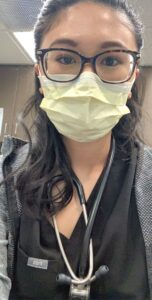
When it was time for our second EOR days on campus, coronavirus had been renamed COVID-19, declared a global pandemic, and minor steps were being taken to prevent and slow the spread. We were unable to take our exam and meet as a whole cohort due to the limit on large public gatherings. We were told that rotation #3 has been cancelled because of hospital systems not allowing students; due to PPE shortages and to cut down on our COVID exposure. We finished our examination and returned home to have the longest (unexpected) break yet in PA school. Now, stay-at-home orders have been placed to “flatten the curve,” schools have been closed for the rest of the semester, and hospitals and clinics have been reduced to caring for COVID+ patients only; no visitors, no elective surgeries, no in-person office visits.
Q: How is this impacting your studies? How will you make up this lost time? Will this impact your graduation? Are you going to be missing out on any clinical experience?
Per ARC-PA (the PA program accrediting body), we are to make-up the lost hours/rotation. After sending the notice that rotation 3 was cancelled, faculty also told us that the plan is to add an additional rotation 9 to the end of our clinical year in December/January. We are hoping hospital systems will begin to allow students back into their institutions and we can continue with rotations 4-8 as planned, plus the additional make-up rotation 9. If everything goes as planned, we will still be able to graduate in December of 2020 and sit for national certification boards in mid-late January. Faculty has been looking into different options to add to our clinical learning in the meantime via online learning modules and virtual OSCEs (objective structured clinical examinations). This is intended to keep our history and physical examination skills strong and for us to work through our assessment and plan of a patient’s work up. Despite the cancelled rotation and this unexpected break, in the end, we will complete all seven of our core rotations plus our elective rotation as previously scheduled, just on a modified timeline.
Q: What are you doing over this time? Are any classmates volunteering?
While we do not have any concrete assignments due over this break time, we are all working and continuing to learn. As a part of our clinical year education, we are to complete a research project that encompasses a paper and poster presentation. Usually, these projects are completed throughout the year with final drafts due in November. Many of my classmates, including myself, are taking advantage of this time to complete our research projects early. We are also using this time to brush up on our clinical medicine knowledge using the topic lists and blueprints created by PAEA, the makers of the EOR examinations. Many of my classmates that are not from the Springfield area traveled back home to spend time with their families. A few of my classmates have reached out to local organizations looking for volunteers to assist the frontline workers with the pandemic. Faculty is keeping us well-informed during this time as well. They are working around the clock to help my cohort and the didactic class through this unprecedented time of virtual learning. Our class has weekly Zoom meetings to stay updated and all faculty is always accessible via email.
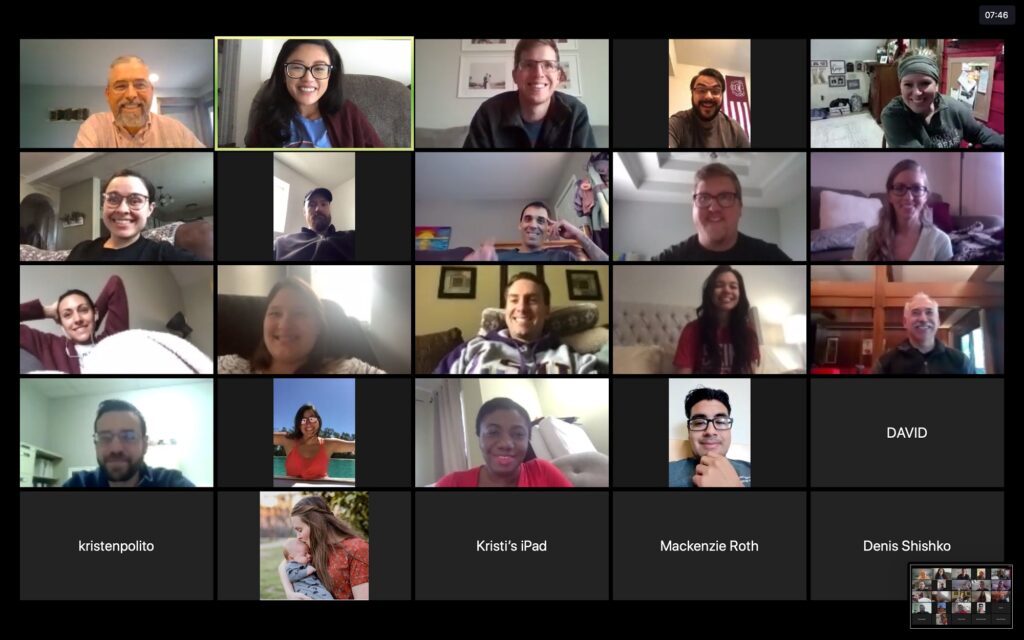
Q: How is the pandemic impacting your class? What are general issues they are facing?
While we are all very excited for clinical year to continue our education in the “real world,” we have been nonstop learning and studying for the past year. I know myself, along with my classmates, have welcomed this unexpected break to slow things down and refresh. A handful of my classmates have children and families that they are able to finally spend quality time with while in quarantine. It is definitely disheartening to have things paused, but we know that this is happening not only to us, but to students and programs across the nation and worldwide. Faculty has been nothing but supportive and transparent with us. I have learned to adjust my expectations and be flexible. We are all at a standstill and are at the mercy of the hospital systems to “allow” students back into their facilities to start to learn again. We are all staying positive throughout this time and are hoping we can restart as soon as safely possible.
Q: Has this reshaped your view on patient care or the PA profession?
Since COVID-19 has been labeled a global pandemic and is on the forefront of everyone’s minds, it has made the nation realize the importance of the healthcare and the people that work within it. My classmates and I all worked in healthcare before PA school, were immersed in it while on rotations, and will rejoin it as providers after school. We are all aware of the amazing, hardworking, devoted people that work behind the scenes. It is great to see this highlighted in the news and on social media amidst the sadness that this virus has caused. These workers are upholding the Hippocratic oath that we all took during our White Coat Ceremony. They are risking their own lives to save others. Even a few MSU PA graduates have signed up to work short term contracts in high-volume areas like NYC. I am proud to (in the future) be a part of the brave individuals that have been working on the front lines to fight COVID and save people’s lives.
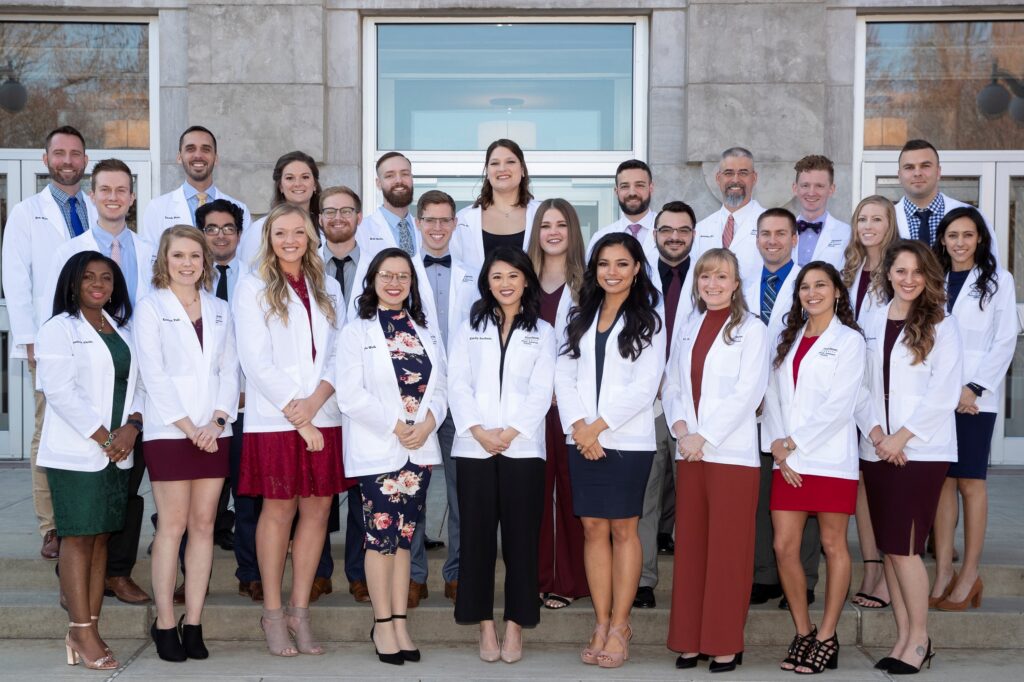

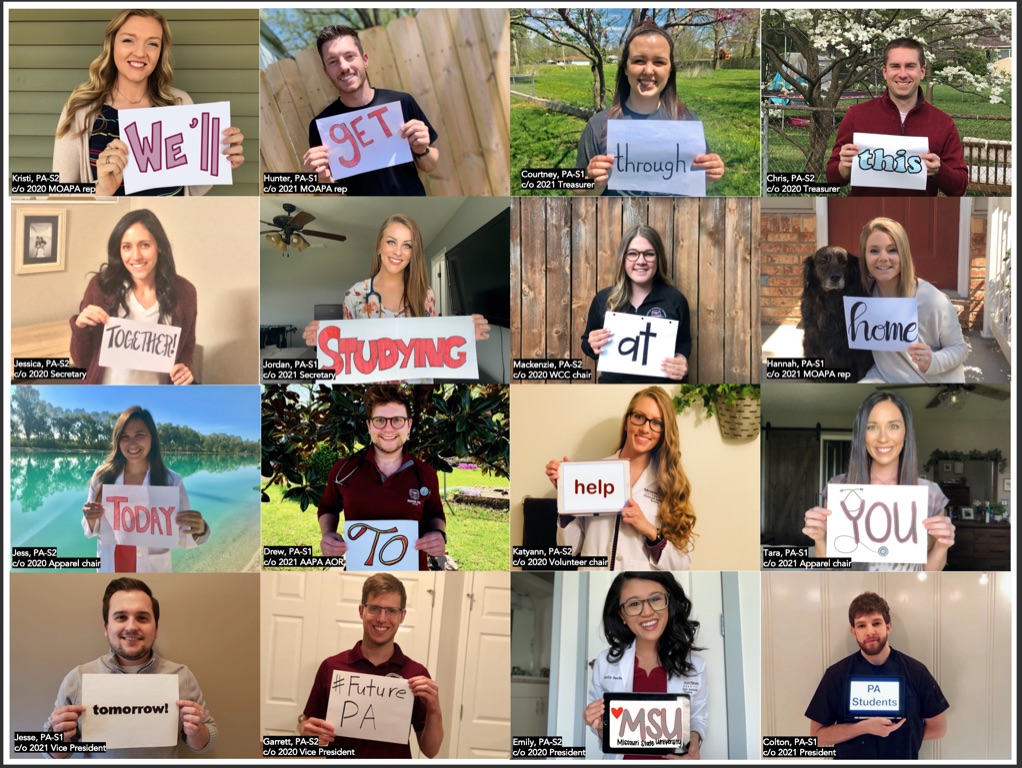
So proud of you Emily !